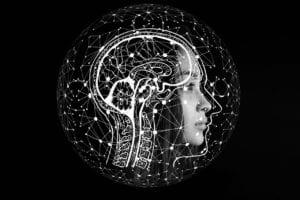Corticobasal Degeneration
What is corticobasal degeneration?
Corticobasal degeneration is a rare neurological condition that causes cell death and deterioration of certain parts of the brain. Affected individuals experience motor, cognitive, and behavioral symptoms.
What are the symptoms of corticobasal degeneration?
Symptoms, severity, and progression can vary greatly between affected individuals. Common symptoms include:
- Stiffness/tightening of the limbs
- Inability to make purposeful, voluntary movements
- Difficulty coordinating movement
- Inability to control a limb
- Tremor
- Slow movements
- Muscle spasms
- Dystonia
- Contractures
- Speech abnormalities
- Difficulty swallowing
- Uncoordinated gait, issues walking
Typically one limb, usually an arm, is affected first, which then spreads to all four limbs. As the disease progresses, people may be unable to walk, effectively communicate, and be susceptible to complications like pneumonia, blood infections, and bacterial infections.
What causes corticobasal degeneration?
Medical professionals are unaware of the exact cause of this condition, but they suspect that aging, environmental factors, and genetics all play a role. They do know that nerve cells in the brain die, as do certain areas. The basal ganglia and cerebral cortex are most commonly impacted, but all areas of the brain can be. They have also discovered that tau plays a role.
How is corticobasal degeneration diagnosed?
Doctors often notice the characteristic symptoms, and then look for progression without a stroke or lesion on the brain to cause it. As this condition often shares symptoms with other neurologic conditions, it can be very difficult to find the correct diagnosis. There are no specific tests for corticobasal degeneration either, but doctors use EEGs, CT scans, and MRIs.
What are the treatments for corticobasal degeneration?
There is no cure for corticobasal degeneration; treatment is symptomatic. Doctors may prescribe certain drugs such as levodopa, clonazepam, and others. Physical, occupational, and speech therapy are also helpful, as are motor aids like walkers.
Where can I find out more about corticobasal degeneration?
Corticobasal Degeneration Articles

Author Jason Matthews Passes Away Due To Corticobasal Degeneration


Toxic Protein Identified: Closing in on Alzheimer’s and Neurodegenerative Diseases







